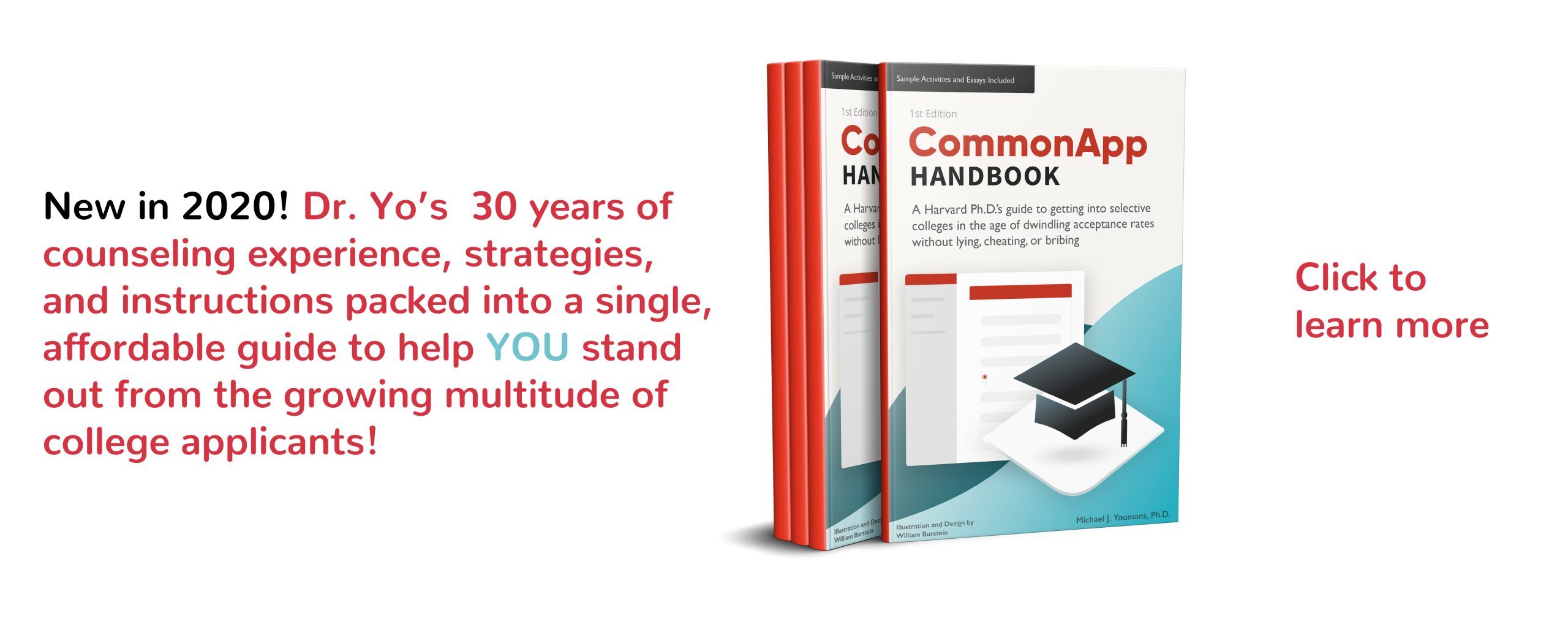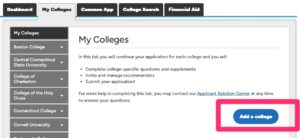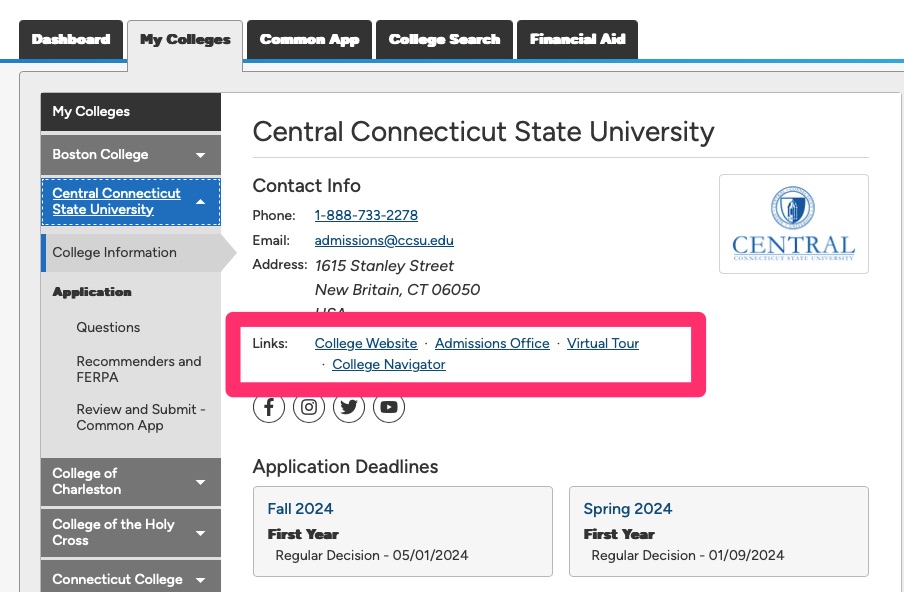How to prepare an….
Question #1: When should I register on Commonapp.org?
Question #2: When should I focus on actually writing my CommonApp?
Short Answer #1: As soon as possible.
Short Answer #2: Between your last final exam this year and the first day of school in the fall.
Slightly elaborated answers:
There is absolutely NO DOWNSIDE to registering sooner rather than later, and there is tremendous upside to sooner. All you need to do to register (commonapp.org) is to spend five or so minutes completing a simple name-date-email style form and you have access to all the questions and writing prompts on the very applications you will eventually send to college, even if that’s 11 or 12 months from now. Or more even. There is NO DANGER of accidentally submitting prematurely (e.g., you’d also have to accidentally complete every required item as well accidentally input a 16 digit credit card, etc., for every college and then accidentally click “Submit.” Can’t happen.) Also, no one but YOU can see ANYTHING on YOUR CommonApp forms.
Why do it now, Dr. Yo, if I have no intention of writing or even thinking much about it until the summer? I’m a junior and have mad stuff to do, especially this spring! Great question, glad you asked.
Two compelling reasons. First, the sooner you register and even skim the questions and items asked of you, the sooner your subconscious can start processing them and working in your favor. Think of a video game. Very few people—even highly adept, computer savvy teenagers!—are much good the first or second time through a game, even on the first, easiest level. And yet, fast forward hours later after simply playing the game—not consciously trying to learn much, just PLAYING—and the very same gamers who fell into all the traps at the outset are expertly navigating their way to the very end and looking for the next video game challenge. What made the difference? Simple exposure and time on task. The more you play, the better you get at it. (Sidebar: life’s like that, too.)
Likewise, college applicants can learn to expertly “play” the web-based CommonApp video game simply by increasing their familiarity with it. Just read through the forms and see what questions are asked and where, noting those under the “Common App” tab that go to every college and those asked specifically by individual colleges in the supplement applications under the “Dashboard” and “My Colleges” tabs. It won’t take long to discover where and how to indicate whether or not you want test score counted and which ones; where to input the names of teachers you will eventually ask to write letters of recommendation; where and how you will report your academic record and interests; where and how you will document your extracurricular pursuits and personal goals for college; how to work with portfolios, videos, and a growing number of other supplemental materials where appropriate; where and what kinds of “additional information” you are permitted to provide. Remember: No pressure, and certainly no significant time spent, actually answering the questions until the summer, but you will find just reviewing the CommonApp forms at your leisure (on your bed or on the couch even—heck, you have my permission to have the TV on if you want) is super helpful in getting your head in the game and leads to much better results when you finally do sit down to bang them out.
Second, you can begin to use the robust information provided about specific colleges in the Dashboard and My Colleges tabs to explore and low-key research the specific academic and extracurricular life at each school of your choice. Note that adding a college to your CommonApp in NO WAY obligates you to apply—it just gives you the OPTION to apply if and when the time comes. When you “Add a College,” you gain access to four great links to highly useful information about that particular school, all within the framework of the CommonApp—College Website, Admissions Office, Virtual Tour, and College Navigator—as well as all the specific supplement items that colleges ask for , including possible essay questions (Note these items and essay prompts may change on August 1 each year, in theory, but they rarely do, and when they do it’s usually not by much.) Again, no pressure to study for an exam or write a single word. You’re just playing a video game and gaining familiarity at this point!
Note: When you resister on Commonapp.org use a gmail account (or other NON-SCHOOL account) so that if you should choose to transfer a year or two down the road, i.e., after your school email account expires, you will still have access to all your materials. Everything is tied to the email address you provide, so choose wisely :-).
As for waiting until the summer to actually focus on and write your CommonApp and supplements, there are many good reasons summarized in a previous post, Writing Applications in the Sweet Spot.
If you want professional and widely experienced help when it comes time to getting it done, please consider our highly effective (as measured by very impressive acceptance rates, always significantly higher than national averages) CommonApp Boot Camps, which run 15 times, 5 days a week (Mon-Fri), 3 hours a day, throughout the summer. Dates/Times/Registration here, and save $200 with Early Bird Registration by the end of March. We’ve also heard this book has been highly useful to many students accepted to colleges of their choice!

Any questions? Ask y our parents. Kidding! Feel free to text Dr. Yo directly at 413-329-7540. We’re here to help! 🙂



